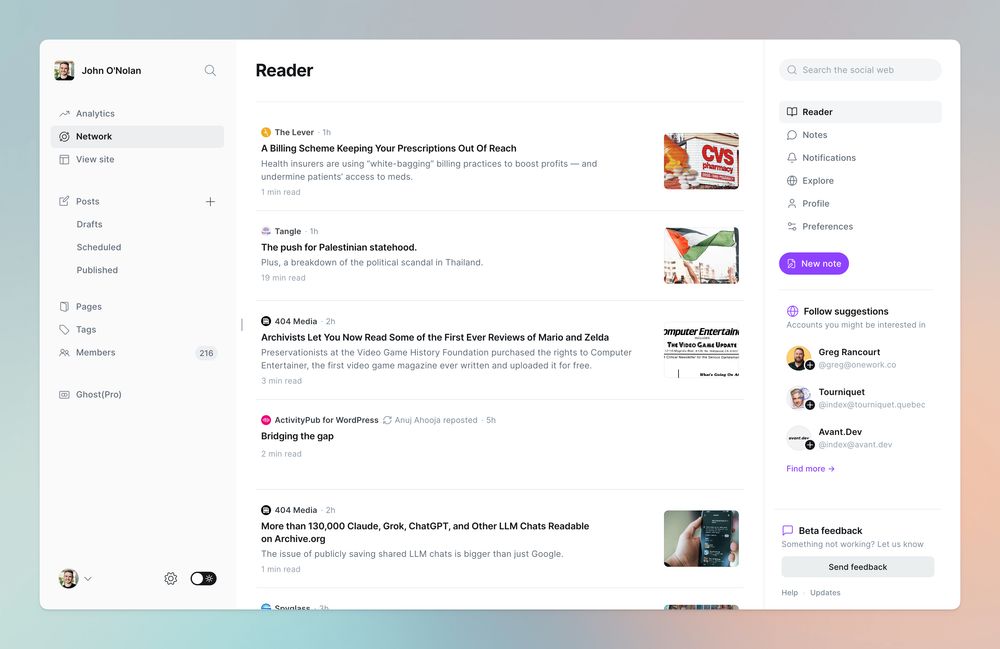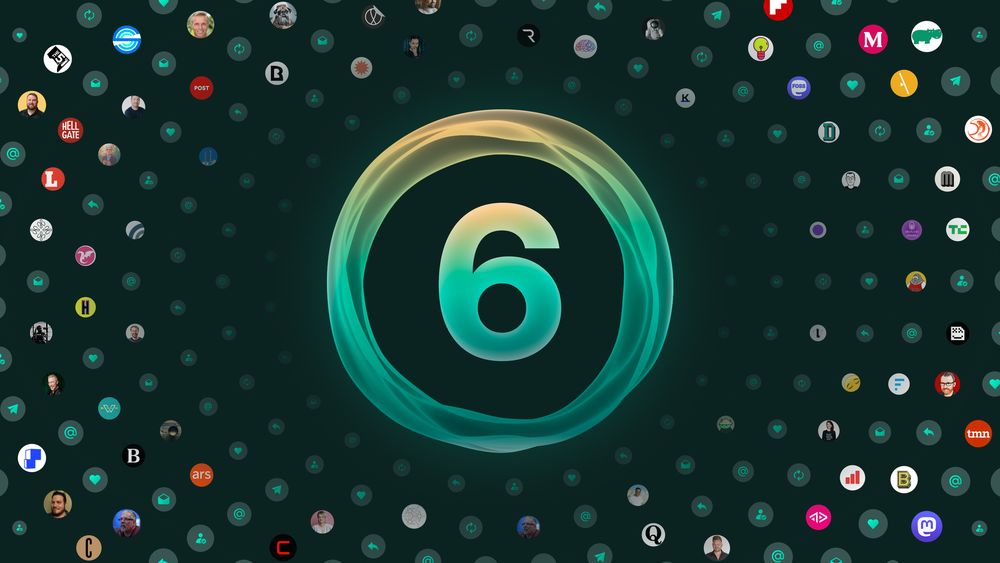Reflections on the social web
My biggest point of uncertainty about Ghost 6.0 was whether people were going to "get" the social web integration.
The technology is wonderful, but complex. For many people, terms like ActivityPub, Fediverse, bridge, protocol, server, toot, boost, and Webfinger are alienating and confusing. They subtly imply that unless you understand what all these words mean, this might not be the place for you; in the same way crypto terms—blockchain, web3, wallet, keypair, nonce—are a wall of jargon that scream "you don't belong here" to normal people.
The work of a product team, when working with new technology, is to abstract away as much of this complexity as possible, so that it feels friendly and approachable to new people.
To send an email, you don't need to know what SMTP, IMAP, POP, DKIM, SPF, or DMARC are. To browse the web, there's no requirement to understand HTTP, DNS, servers, SSL, TTL, load balancing, or caches. The most significant impact these protocols have is perhaps that users never have to think about them.
So while building the social web integration for Ghost, we weren't just reasoning about how to make it work and what it should do—we were thinking deeply about how to frame it. What words to use. What to compare it to. How to explain it. How to make it not need explaining at all.
Will people "get it"?
This question consumed more of my mental energy than anything else, right up until the moment we finally hit launch this past Monday.
My personal nightmare would have been if the response to the launch was another chorus of "I don't understand what the point of this is"—"this is too complicated"—"what does [x] even mean?" I've seen it happen so many times before when people try to figure out this tech and how it relates to their lives. The graveyard of technically superior but user-hostile products is vast.
But, I'm thrilled to see—at least so far—that hasn't been the case.
To be sure, there are still points of functional confusion. Chief among them: Why doesn't post X from platform Y show up on platform Z right away? But for the most part, I've been really encouraged by how many people have just jumped right in and started using it, without getting stuck and needing more explanation. They're just... publishing. And connecting. And it's working.
My strongest belief about the social web is that if we want it to succeed, we have to keep lowering the barrier to entry.
We have to keep minimizing the need for arcane language. We have to keep solving the things that people expect to work, but don't, rather than endlessly explaining how the underlying technology works. We have to create more familiarity with concepts people already know.
Let's not forget that email, as a technology, was based on the humble letter. To/from, subject, inbox, outbox—these were all words based on sending physical memos. The metaphor made the transition accessible.
The interface and format of a new technology can often be the single biggest factor in determining its adoption.
After all, for over a decade, we've had artificial intelligence capable of performing some pretty incredible tasks. The moment it really caught fire, though, was the moment it became a chatbox. Not when it got smarter. Not when it got more powerful. When it got simpler.
I think we've taken a big step in the right direction with the social web in Ghost 6.0.
And now we need to keep going.




